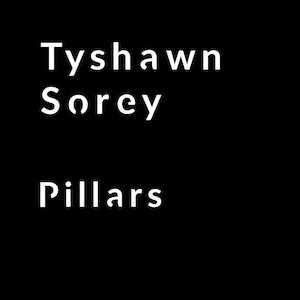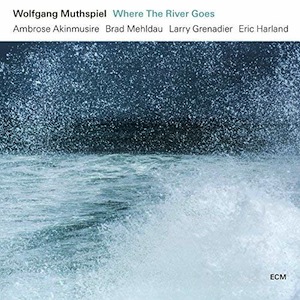Label: Rataplan Records, 2018
Personnel - Ellery Eskelin: tenor saxophone; Dave Ballou: trumpet; Michael Formanek: bass; Devin Gray: drums.
Dirigo Rataplan, a genuine product of the fertile musical ground of New York, is one of the brainchildren of Brooklyn-based drummer Devin Gray, who also leads the quartets Relative Resonance and Fashionable Pop Music. This stellar chord-less quartet includes stalwarts of the ‘scene’ such as saxophonist Ellery Eskelin, trumpeter Dave Ballou, and bassist Michael Formanek, with whom Gray establishes a vital rhythmic thrust. For Dirigo’s second chapter, the drummer based himself on experiences he had over the past six years and also tried to reflect how we, as human beings, currently live in the current world.
Materializing bold modernistic impulses through a grooving, carnivalesque samba flavor, “Congruently” discloses in its title how the quartet communicates. The rhythm team weaves an unbreakable net over which Eskelin and Ballou interacts, going separate ways but eventually converging when required.
“Rollin’ Thru Town” flows freely and loosely, digressing without a particular direction. While the frontline juxtaposes insouciant phrases, the bassist pushes back and the drummer completes the scenario with colorful, freewheeling chops. The musicians find a common path by the end, rejoicing in their trajectories with a laudable affinity.
If the quietness of “The Feeling of Healing”, dedicated to Steve Grover (Gray’s former teacher in his Maine), is also prone to divagation, then the shifting “Trends Of Trending” bounces off with an astute bass groove that is momentarily interrupted to install an unanchored passage demarcated by a darker semblance. The piece regains further impetus for the final section, where dry rhythmic punches are validated by the restless horn players. There is some hints of funk in its nature, just like it happens on “The Wire”, an energetic avant-garde feast a-la Don Cherry where melodic unisons give place to an uproarious reaction while Eskellin blows with an unrestricted sense of exploration. Ballou also impresses with a sudden, energetic entrance, complemented with fulminant high-pitched attacks that never feel extreme.
Before finishing dynamically with “Micro Dosage”, a short yet adventurous piece, the quartet builds “Intrepid Travelers”, departing from an unhurriedly rubato and landing on a waltzing cadence that brings Formanek to the forefront. The bassist shows how fluid and creative he can be with melody.
Employing modern jazz patterns to describe the quotidian life, Gray is far from predictable as a composer. By proclaiming an intelligent approach to song structure with plenty of groove and diversified tempos, Gray shapes Dirigo Rataplan II as an urgent contemporary record. And of course, because each member of his quartet is a virtuoso player, it all sounds effortless and responsive, regardless of the complexity of the passages.
Grade A-
Favorite Tracks:
01 - Congruently ► 03 - Trends of Trending ► 10 - Micro Dosage








































